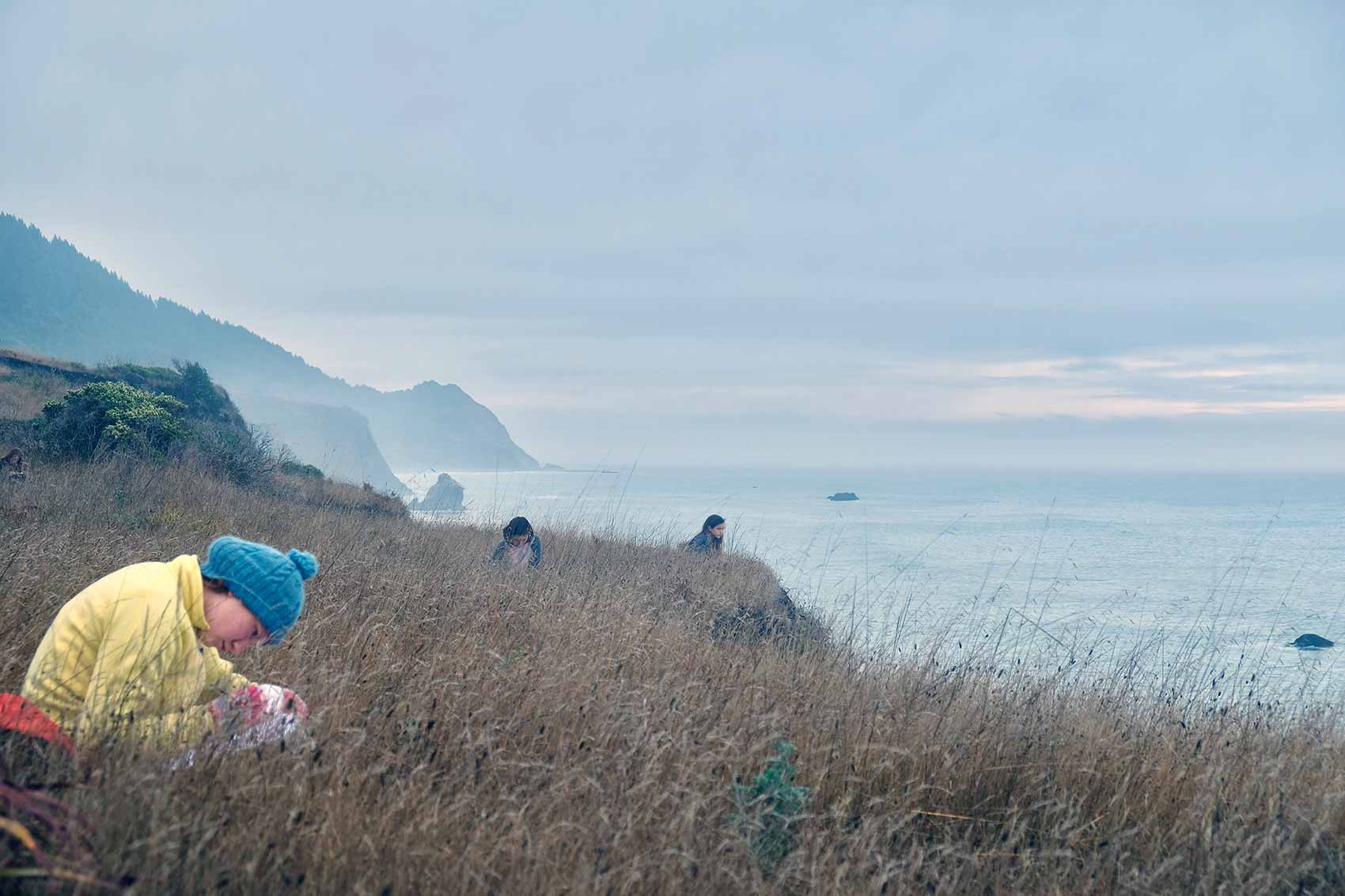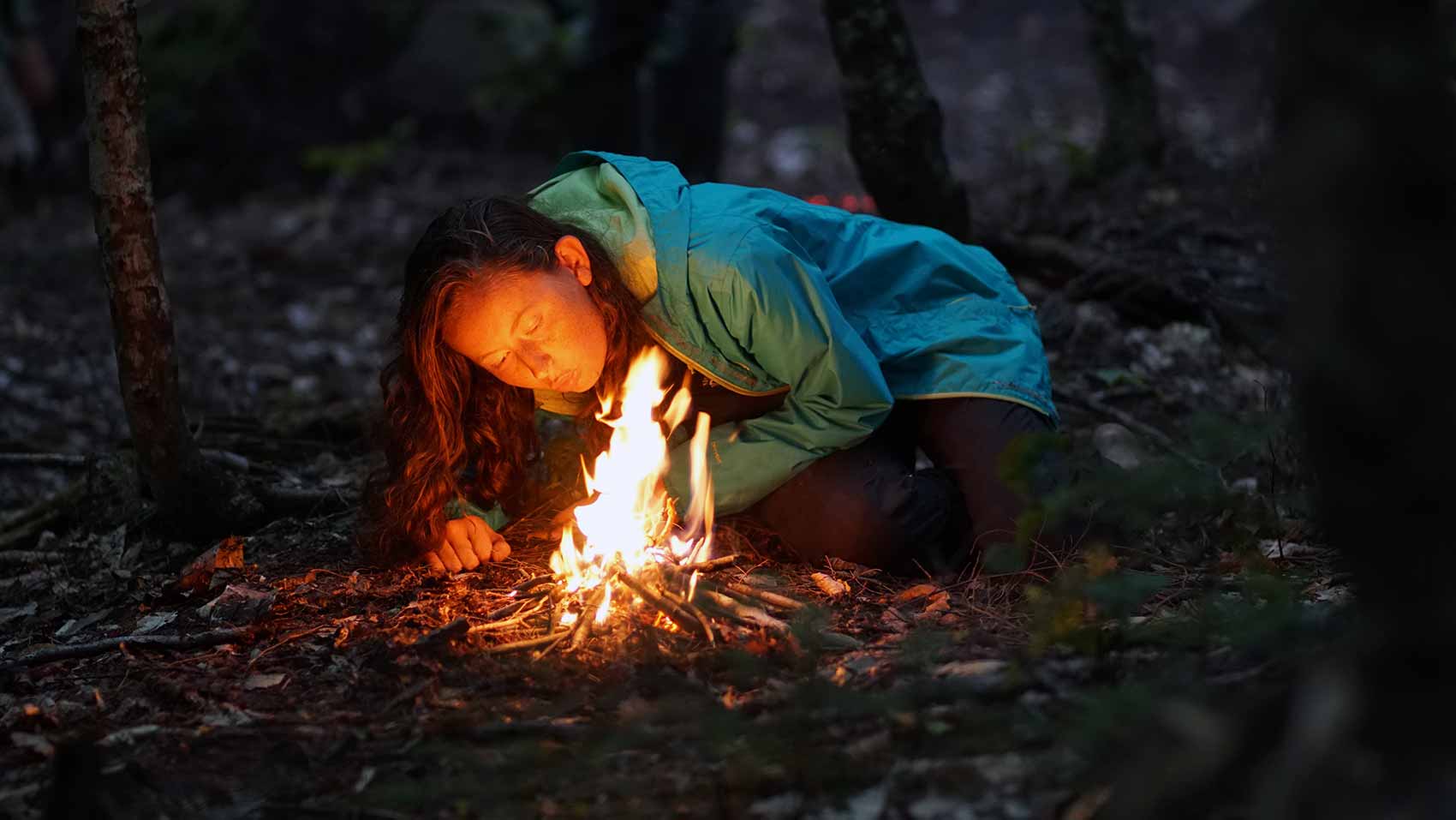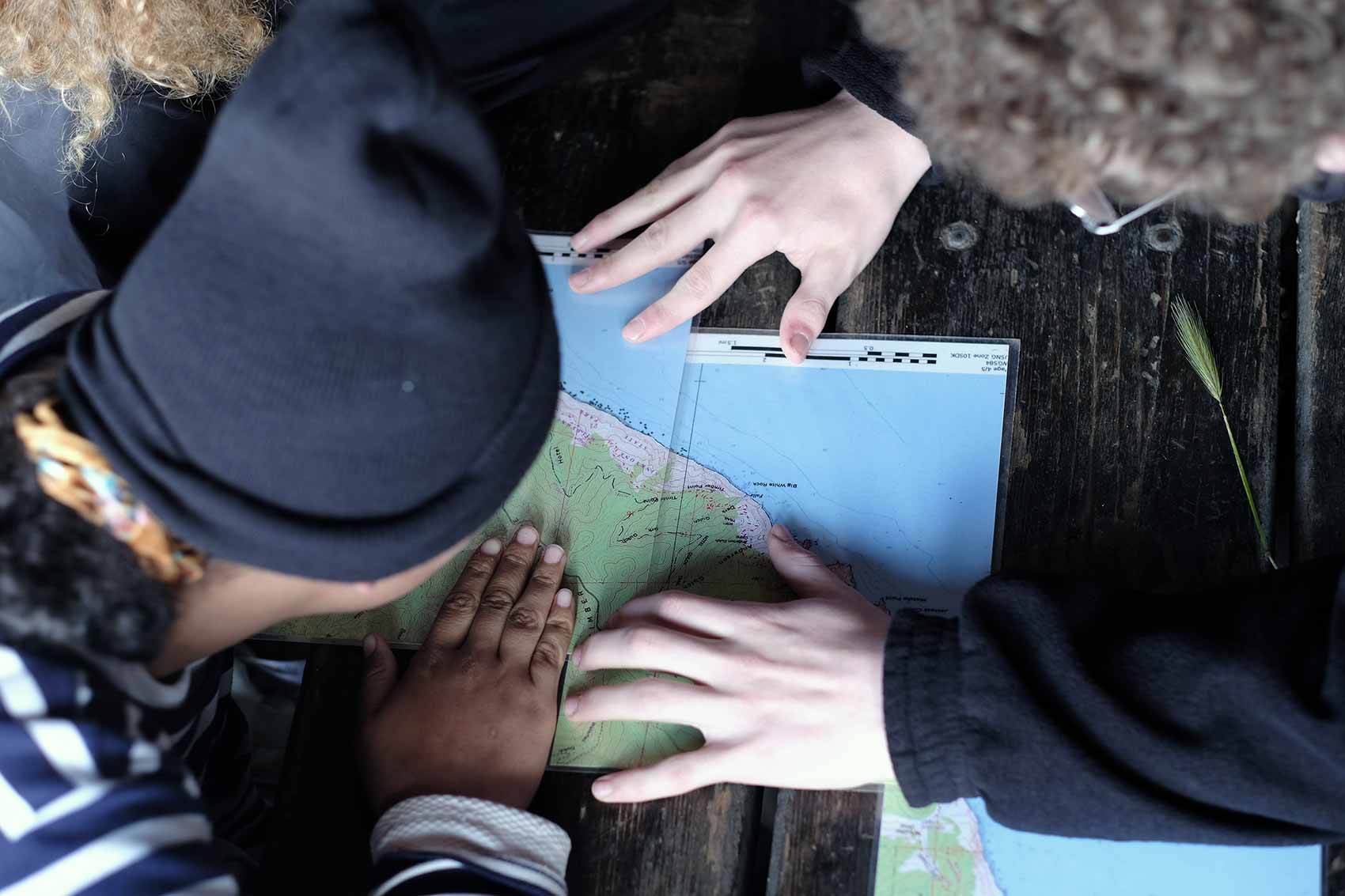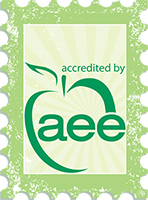Kroka strives to meet each individual student where they are and support them to grow towards their highest potential. This is done through cultivating intuitive leadership, incorporation of Waldorf education principles, place-based experiential learning, and progressive skill building that allows for students to feel genuine ownership of their experiences.
“Our primary work is helping young people to invoke their own will forces to do good in the world.”
– Founding Director Misha Golfman
Intuitive Leadership
In a wilderness setting, one always needs to be ready to adapt to the present moment. This is why we value the importance of a developed sense of intuition in combination with leadership skills. The four core principles of intuitive leadership are:
-
- Observing the world around us
- Working with the elemental forces
- Practicing skills for self-reliance
- Acknowledging the unseen world
Our curriculum is centered around simplicity, authenticity, gratitude, and cooperation. As much as possible we source our food and gear locally, we engage with communities that we travel through, we value adaptation and mindful decision making, and we encourage appropriate risk taking.

Waldorf Education
The core aspects of Waldorf education that Kroka draws on include:
- An understanding of people as spiritual as well as physical beings
- Reverence and respect for the earth
- The development of will force through physical work
- Joining in community and tradition through song, storytelling and ritual
- A belief that children should engage in their own learning joyfully and willingly
- The balance of form and structure to bring about a sense of freedom

Place-based Experiential Learning
“Experiential learning is an active rather than passive process, with participants motivated by, responsible for, and accountable for their own learning and growth. The activity itself draws the participants into action, and staff encourage this process. The educational experience is structured to allow the learner to take initiative, pose questions, solve problems, demonstrate curiosity, exercise creativity, be flexible, experiment, and ultimately construct meaning from the experience.”
-Association for Experiential Education Self-Assessment 6th Edition
Kroka programs tie in ecological and historical lessons from the land where expeditions take place, while engaging students in every aspect of the learning process. The rhythm of each day combines physically engaging work and travel through adventure sports, group decision making and problem solving, song and celebration, and time for reflection. Adventure sports include: white water paddling, rock climbing, mountain biking, backpacking, and ocean canoeing and sailing.

Progressive Skill Building Towards Independence
Programs at Kroka center around handing responsibility and leadership over to students so they feel genuine ownership of their experiences. This is done through thoughtful mentorship. Students are held more tightly in the beginning of a program as they learn the basic skills needed to thrive as a community in a wilderness setting. Kroka instructors then step back to allow students to take the lead and return from their expedition with pride of what they have accomplished.
Skills learned on a Kroka program include:
- Adventure Sports – climbing, paddling, hiking, caving, mountain biking, backcountry skiing
- Arts – music, theater, painting, drawing
- Hand Crafts – spoon carving, basket weaving, boat building
- Expedition & Wilderness Living Skills towards “not surviving, but thriving!” – fire, food, water, shelter, health & hygiene systems
- Farm and Food – sustainable agriculture, permaculture, food systems, animal care
- Earth Science & Ecology – navigation, energy systems, forestry, hydrology, wild edibles, and weather systems
- Leadership & Personal Integrity – community living and local community development, community service projects, local history, social justic
- And many more!

